I live a charmed life. Last week, I spent four days with nine of the top newspaper experts in the business, along with journalists from 22 states who were attending The Newspaper Institute in Knoxville, Tenn.
When those journalists get home, they often write to me about their experiences. More times than not, they mention the thrill of spending time with leaders they’ve followed for years.
Besides spending time with those “big names” at the Institute, I often get to visit and work with them at other times. In September, I began an experiment that has turned out quite nicely. As part of a project a group of us began working on last year, I created an online radio station and began interviewing folks I thought would be of interest to journalists. The results have been fascinating, and I decided to share quotes from a few of the interviews in this column.
 Ed Henninger, Sept. 13
Ed Henninger, Sept. 13
Having developed a close relationship with Ed Henninger during the past 10 years, I invited him to be my first guest on “News Guru Radio.” I expected the conversation to revolve around design, but as is often the case during those interviews, the subject turned to more pressing matters. Ed brought up the topic of “synergy,” sharing memories from his days as a daily newspaper editor.
“Even before the web, larger papers started chasing their tails. ‘Synergy’ was where we all of a sudden decided to join efforts with the television newsroom. I remember sitting in meetings and thinking,’ ‘This is just so much garbage. Who came up with this?’”
Ed shared his concern that too many larger papers are more interested in cutting than growing.
“Too many stopped looking for ways to generate revenue and started looking for ways to cut costs. Not all are that way. But a lot of larger companies are no longer looking for ways to generate revenue. So the first thing they do when they buy a paper is to start firing people.”
 Tim Smith, Sept. 19
Tim Smith, Sept. 19
Tim was my third guest on the program, and several listeners wrote in about all they had learned during the interview.
Tim had a lot to say about treating the customer right: “The customer is thinking, ‘This is the fourth salesperson I’ve seen in the last two years.’ They’re asking ‘What’s going on? Have you got a revolving door?’ I don’t blame them for wondering if they should be putting money into this paper.”
I asked Tim if he saw a lot of folks doing well selling digital advertising at newspapers.
“I see newspaper people taking from the print side to the digital side. The paper is the bread and butter, but I’ve seen companies pushing digital. I’m not going to shove something digital down my customers’ throats if they don’t need it.”
Tim discussed the tendency for metro papers to force digital onto their customers, rather than giving them what they want.
He didn’t mince words when he told me, “You’re going down the road Wells Fargo went down. I’m trying to sell stuff they don’t need (digital), and I’m trying to hide it or bury it so they don’t see it.”
He said digital sales have become too much “‘this is what I have’ instead of ‘this is what I need.’”
 Karl Kuntz, Sept. 27
Karl Kuntz, Sept. 27
Kuntz is a household name in photojournalism, and I wasn’t surprised that we had a big audience for the interview. We spoke for 30 minutes, and Karl gave some much-needed advice on getting great pictures.
Discussing sports photography, he said: “I search for a different way of looking at a picture. Once, when preparing to shoot a big game, I knew if Ohio State won, everyone would storm the field. I got to the stadium two hours before the game, got in my position, and stayed in the same spot the whole game to get two pictures. One was a six-column front page picture of the team carrying the quarterback off the field. Later, people would say, ‘That’s kind of a lucky picture.’ It wasn’t luck. It was planning.”
He advised listeners to look for a story off the field.
“Don’t just shoot action pictures. Sometimes the storytelling picture is not the action picture.”
 Chris Ashfield, Sept. 30
Chris Ashfield, Sept. 30
Chris is a community publisher in Saskatchewan. I learned during the interview that he had just purchased a paper previously owned by a large national corporation. He told us how things were coming along after transforming the newspaper from a corporately-owned paper to a community paper.
He described the transformation: “We’re getting more and more subscribers every day. We’re seeing advertisers come in and sign year-long contracts.”
I thought I might be hearing things, so I asked, “People are subscribing to the newspaper?”
“Believe it or not, people actually want to read the newspaper,” Ashfield said. “And advertisers see that we are serious about covering the community and they like it. They’re coming back to community newspapers as well.”
Chris told us the secret is all about keeping things local.
“We want to keep our local base of readers and advertisers happy. Because of that, we do a lot of things differently than a corporation would. I think that’s why we’re starting to see a resurgence of community papers in Canada.”
Joey Young, Oct. 12
Joey is the 32-year-old Kansas publisher I wrote about two months ago. He came up with a crazy idea of establishing print-focused community papers, and the world is taking note of his success. We learned in the interview that he didn’t inherit the papers or the money to establish the papers. He did it through luck and hard work.
“It’s been nuts. I didn’t realize we were in a really good position. My friends were questioning what I was doing because they don’t understand the newspaper business.”
I asked how things were going after three years.
“We’ve just kind’ve blown up,” Joey said. “We’re up to four weeklies, one monthly, and a glossy magazine.”
Joey was quick to share his thoughts about investing in digital publishing.
“Publishers think they should be doing more digitally than they are. They throw things at the wall to see what sticks. I didn’t have any idea how many people were going to call me, trying to sell me the next great digital product to make me rich. To be honest, I haven’t found one that works yet.”
I asked why, after 20 years, newspapers still think that there is a fortune to be made on the digital platform.
“I think everybody lives in their bubble and thinks, ‘Somebody’s gotta be making money with this or they wouldn’t be selling it.’”
He was quick to add, “I’m not sure anybody is.”
Joey, who owns both paid and free papers, went on to praise two associations his paper is a member of: Midwest Free Community Papers and Kansas Press Association.
“I met you though MFCP, and I’m proud of my state association in Kansas. They’ve had you out recently. They’ve also had Ed Henninger visit. I believe our association is doing a good job focusing on print.”
 Iris Chyi, Oct. 17
Iris Chyi, Oct. 17
Sometimes you just get lucky. That was the case Oct. 17 as I interviewed Iris Chyi of The University of Texas School of Journalism.
I was lucky because just one day later, my inbox was flooded with links to a story on Politico.com from journalists at newspapers, primarily metro papers, throughout the country. The link was to an interview with Chyi, discussing her research into the biggest newspapers in the United States.
Many of the messages began with “You’ve been telling us this all along,” or, “I guess you can write to all the metros and tell them you told them so.”
I wrote about Chyi in this column two months ago. For the past two years, she and I have been discussing our research – mine focusing on newspapers as a whole, hers focusing on metro papers exclusively – that lead us to the same conclusions.
Discussing the popularity of digital newspapers, Chyi told me: “Since day one, the digital-first thinking has become an ideology that’s been getting stronger every day. However, the audience response has been really underwhelming.”
“Hang on,” I said. “Did you just say that the audience response to digital-first has not been as huge as we might have been led to believe?”
“That’s correct,” she said. “Since day one.”
She reminded my listeners that that isn’t a new development.
“It’s been 20 years. This is 2016. It’s been 20 years that newspapers have been experimenting with digital. We’ve found that, as of last year, each of the 51 metro papers we’ve studied had far more print readers than online readers in their local markets. Not only that, during the past eight years, most have seen no or little growth in their online readership.”
I learned something new when she discussed similar research taking place around the world.
“I’ve conducted research in Hong Kong and Taiwan,” she told me. “Other researchers are reaching the same conclusions in the U.K., so I can say this has been a fairly universal pattern.”
Chyi seems to be popular at the moment; major organizations are taking note of her research. She talked to me about “group think,” the notion that large groups can share an ideology simply because so many people believe it, whether it’s true or not. She concluded our visit by sharing an interesting example of group think that occurred when she wrote an essay for a national press association whose membership included many of America’s metro papers.
“A well-known newspaper association invited me to write an essay about my research, but after a few days told me they couldn’t run my story. Many of their metro members were pursuing a digital-first strategy. It struck me how this ‘group think’ can be so pervasive.”
I asked why, if so much independent research indicates that digital-first isn’t working, so many large papers continue to push forward along that path.
“I don’t have any idea,” she said. “You will have to ask them.”
Maybe that will be in a future interview.
You can find a listing of upcoming interviews at newspaperacademy.com.
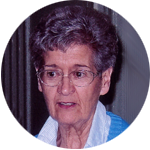

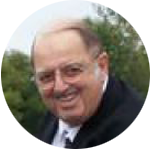
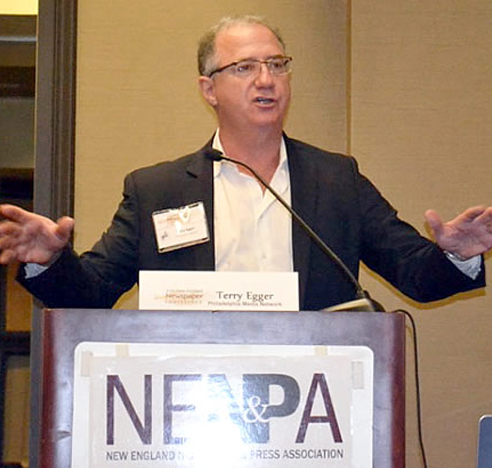
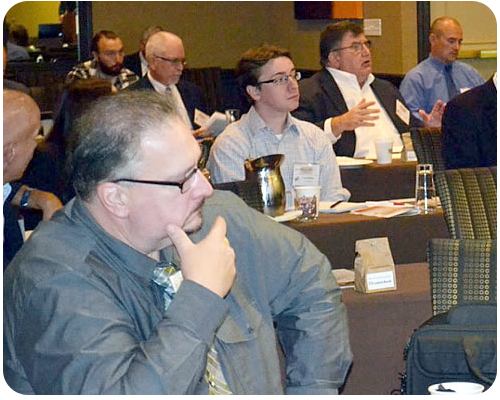
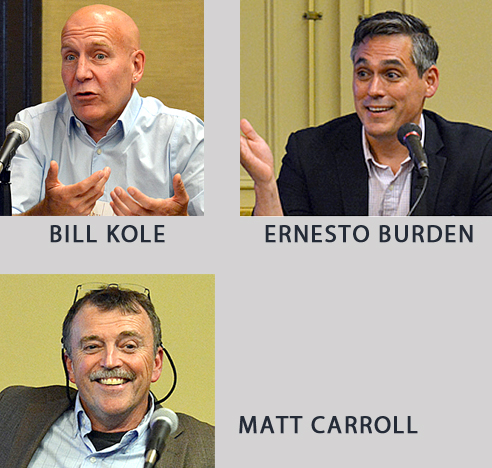
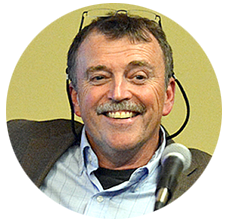
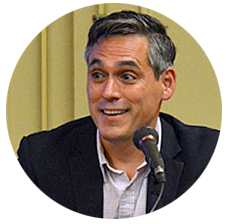
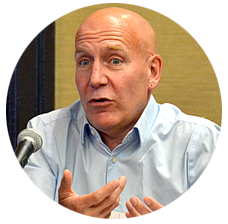
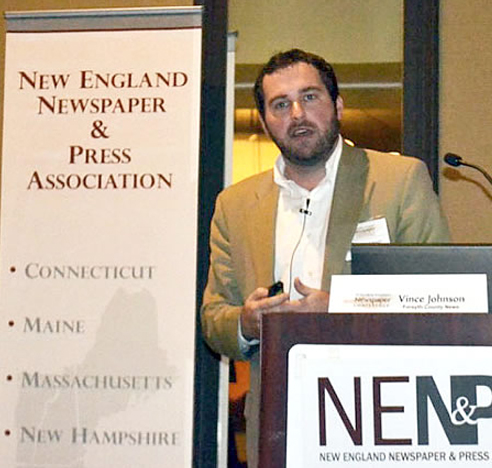
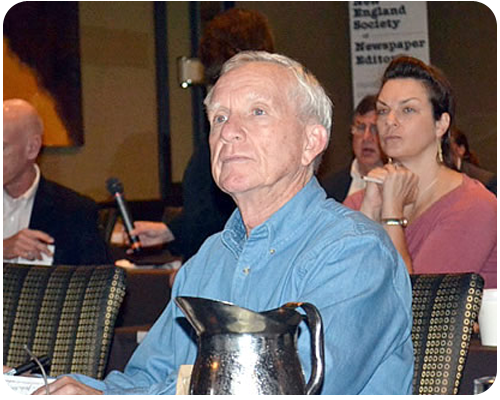
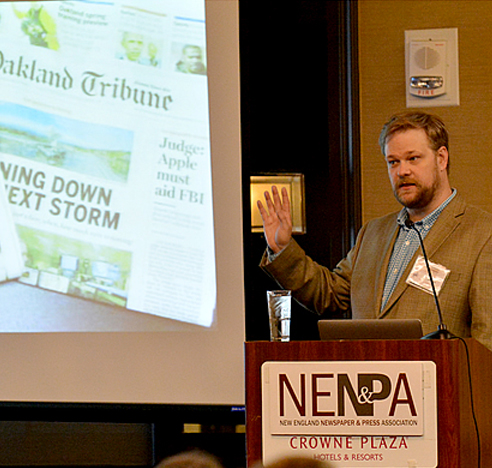
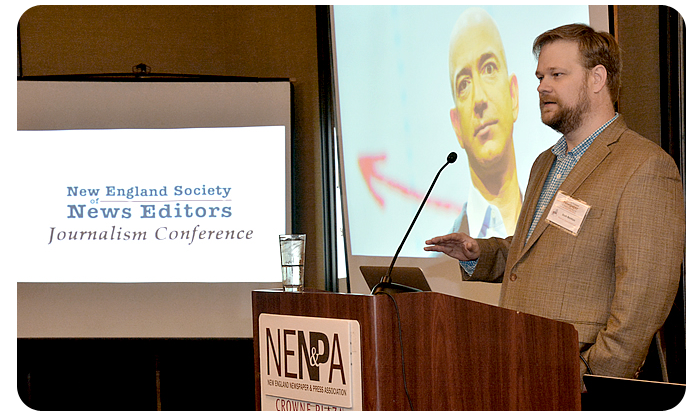
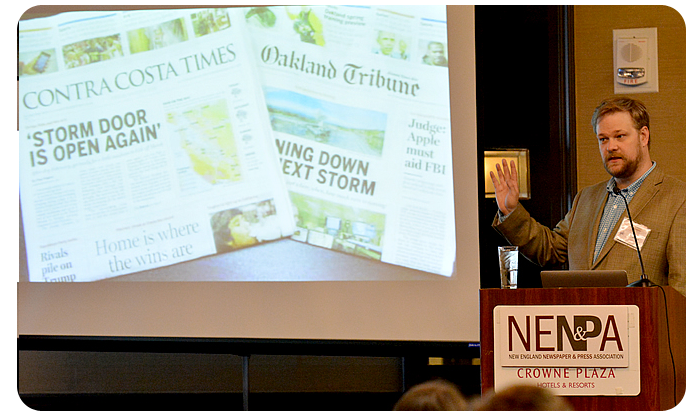
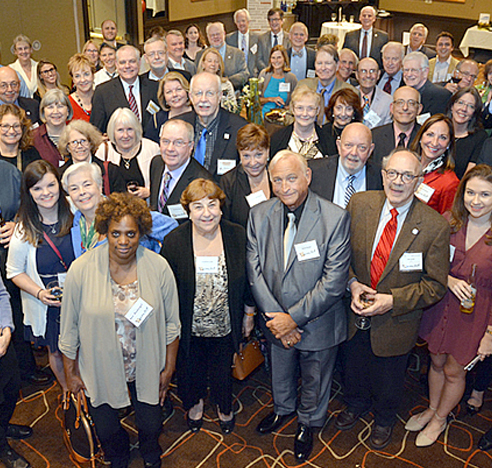
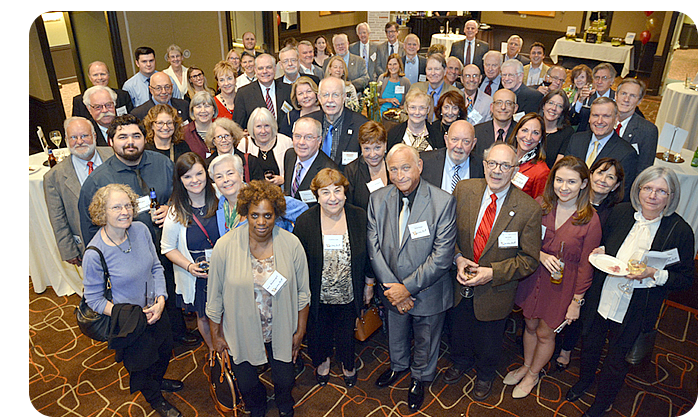

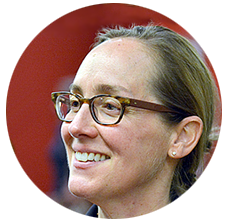

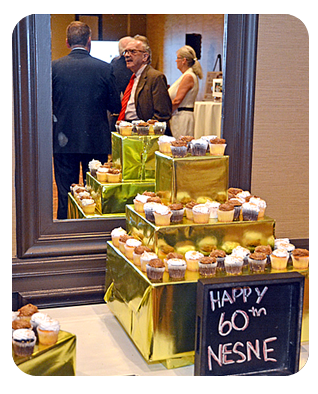
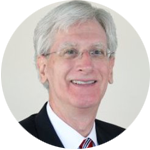

 Ed Henninger, Sept. 13
Ed Henninger, Sept. 13 Tim Smith, Sept. 19
Tim Smith, Sept. 19 Karl Kuntz, Sept. 27
Karl Kuntz, Sept. 27 Chris Ashfield, Sept. 30
Chris Ashfield, Sept. 30 Iris Chyi, Oct. 17
Iris Chyi, Oct. 17